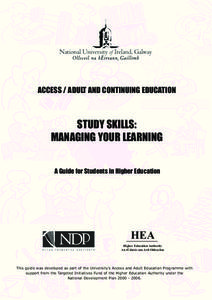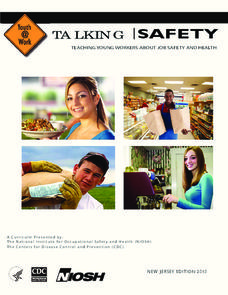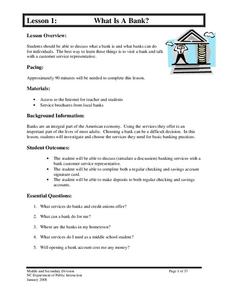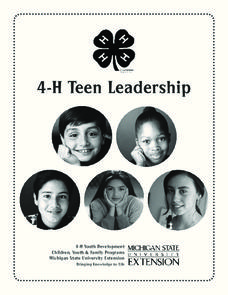National Research Center for Career and Technical Education
Costing
Your young business men and women discover that selling what they make at a profit is the key in running a business. Learners practice the contextual math needed in the CTE lesson; then apply their percent proportion concepts in solving...
University of Galway
Study Skills: Managing Your Learning
The National University of Ireland presents this study skills, time management, and life skills guide loaded with sage advice about motivation, goal setting, time management, effective study, and exam preparation.
University of Kentucky
The Successful Person's Guide to Time Management
"If you don't know where you are going, you might end up someplace else." Yogi Berra's wise words can also be applied to time-management. In order to be successful at time-management you need to know where you are going, what you want to...
Fairbanks North Star Borough School District
Educator's Guide to Introducing Students to Google Docs
After learning how to create and name a Google Doc, individuals have the opportunity to share and collaborate with class members on a writing prompt assignment. Once grasped, students are encouraged to create a practice document on their...
Curated OER
School Year Reflections
The end-of-year period is a great time to pause and reflect on the experiences that made up the school year. Let the reflecting begin with a worksheet that prompts scholars to think back and respond with important lessons learned,...
Centers for Disease Control and Prevention
Talking Safety
Chances are, many of the teens in your class have jobs or want to have jobs in the near future. Educate them about the hazards and emergencies that could occur in various workplaces with a set of lessons published by the National...
Curated OER
Committing to Respect: Lessons for Students to Address Bias
Here's a guide designed to build safe, respectful learning environments, and to build understanding of the value of diversity through lessons packed with activities for specific grade levels.
North Carolina Department of Public Instruction
What Is A Bank?
You're never too young to learn about banking and personal finance. Use a set of seven banking lessons to teach middle schoolers about checking and savings accounts, interest rates, loans and credit cards, and safety deposit boxes.
Curated OER
Dilworth Elementary Character Education Respect (September)
R-e-s-p-e-c-t, find out what it means to your class! After a grand conversation about what is, and how one can show respect, scholars take part in a plethora of activity choices such as role playing, a game of Simon Says, wood working,...
Curated OER
Microsoft® PowerPoint 2010 Training
How cool it this? A PowerPoint presentation designed to introduce trainers to PowerPoint 2010 and provides tips and tricks for using the program.
Curated OER
Microsoft Office for Mac 2011 Tutorial: PowerPoint Basics
Here's a tutorial designed to introduce Mac users to the basics of Microsoft's PowerPoint software and to help them develop their skills using the program.
Pickett's Mill Elementary
Test Taking Hints and Strategies for Standardized Tests
Process of elimination is a valuable test-taking strategy, but what else can we teach our class about taking tests? Present a resource that promotes healthy eating and sleeping before taking a test, as well as suggesting reading the...
Federal Reserve Bank
Financial Literacy Infographic Scavenger Hunt
A lesson in personal finance can be the most valuable part of a high school education. Connect the basics of banking with informational reading skills in a lesson that prompts teenagers to answer a series of questions based on an array...
Me and My Shadow
Trace My Shadow
Which creates more digital traces: surfing the Internet in a coffee shop, or using an iPhone to send a text message? The answer may surprise you! An interactive resource prompts users to choose which devices, operating systems, and...
Michigan State University
4-H Teen Leadership
Take your 4-H teens to the next level! Help them learn how to be an active part of their communities with a teen leadership development unit. Individuals, together with school and community partners, create and execute a service-driven...
Community High School of Vermont
Habits of the Mind
An informative one-page resource details the 16 Habits of Mind. Habits encourage positive problem-solving, self-awareness, creativity, and dedication—lifelong skills that can be used in both academic and social settings.
Curated OER
“Everyone Else Does It!” Ethics Project
Do you have good ethics? How about good morals? Scholars investigate the role business ethics, morals, and values play in society. Through role play, group work, and readings, they uncover the basis behind the importance of being...
Whole Person Associates
Teen Self Esteem Workbook
Happy teens are healthy teens! Pupils embark on a self-reflective journey using a series of assessments and discussions to promote personal development. The lessons focus on identifying low and high self-esteem attitudes and behaviors,...
Newseum
Evidence: Do the Facts Hold Up?
Sometimes it's hard to escape bad information! Pupils learn the E.S.C.A.P.E. method for evaluating news sources and complete a worksheet to assess a news article using their new skills.
Newseum
Slanted Facts and Slippery Numbers
The Internet is known as the information superhighway, but sometimes it's hard to know when to hit the brakes on unreliable sources. Using a well-rounded lesson plan, pupils read and summarize articles about the gender pay gap and...
Newseum
Editorials and Opinion Articles
Reading the news is fun, and that's a fact! With the lesson plan, scholars differentiate between fact and opinion as they read editorial articles. They complete a worksheet to analyze the information before writing their own editorials...
Newseum
Putting the Consumer's Questions to Work
Who, what, when, where, why, and how are good questions to ask when evaluating a source. First, scholars find two sources of information relating to a chosen topic. Next, pupils complete a worksheet to gauge the source's credibility....
Newseum
Can I Trust the Creators?
It's easy to find information at the click of a mouse, but is it trustworthy? Pupils learn about the E.S.C.A.P.E. acronym for evaluating sources. Next, learners read a news story and evaluate its sources to determine credibility. Last,...
Newseum
E.S.C.A.P.E. Junk News
Fair, balanced, and reputable information? There's an acronym for that! Scholars learn the E.S.C.A.P.E. method for evaluating news sources. Then, pupils work in small groups to read and analyze a news story and discuss the activity to...

























